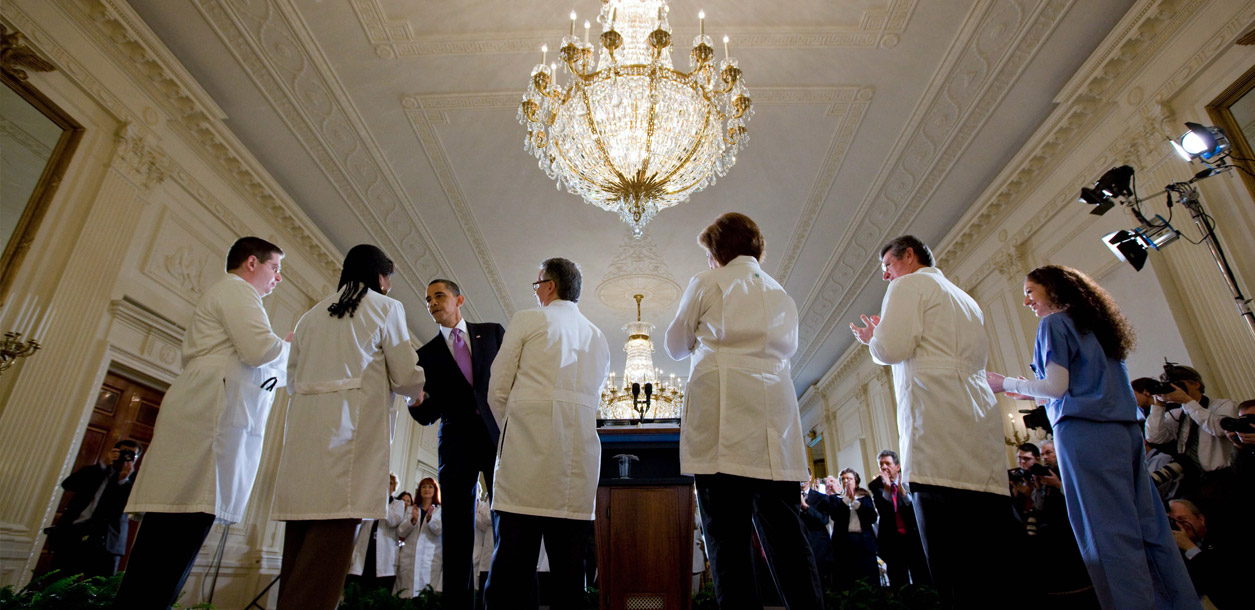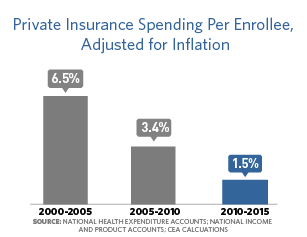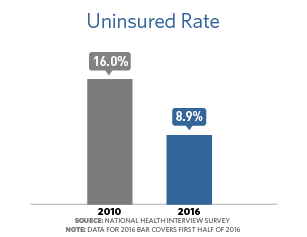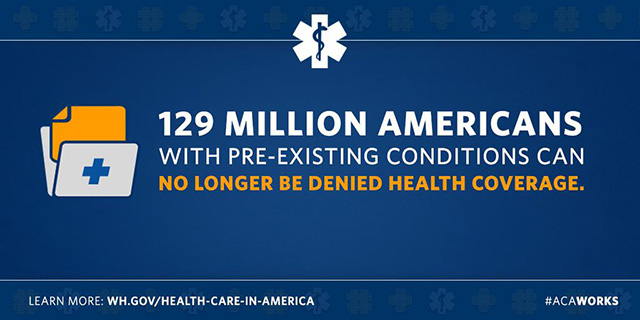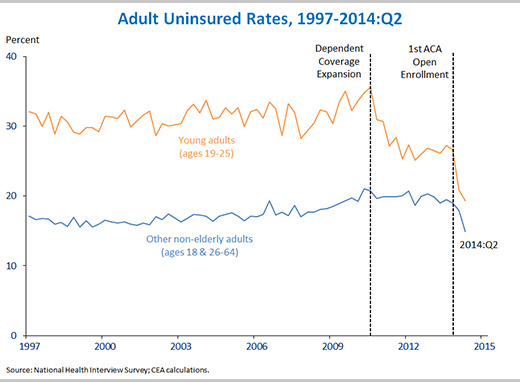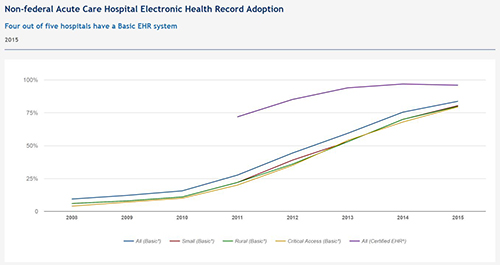President Obama asked each member of his Cabinet to write an Exit Memo on the progress we’ve made, their vision for the country’s future, and the work that remains in order to achieve that vision. Here are their key points on the work ahead to improve health for all Americans.
Building on the Progress of the ACA
“Repealing the ACA, as some have suggested, risks rolling back consumer protections – like making it illegal to discriminate against those with pre-existing conditions and improving benefits – for Americans who get health insurance through the Marketplace, Medicare, Medicaid, or on the job. A recent study shows nearly 30 million Americans would lose their coverage under one version of repeal as well. We can work together to make the system even better, but we should build on the progress we’ve made, not go backwards.”
—Secretary Burwell
Reforming the Health Care Delivery System
“Building on the successful models developed during this Administration, while seeking out opportunities to extend value-based payment to an even broader range of providers and health care services, including high-cost drugs, not only benefits patients but allows clinicians the flexibility to practice medicine in the way that best meets the needs of their patients. The passage of MACRA was a monumental step forward in the effort to reward quality and value in physician payments; however, additional federal legislation should be considered that would use payment incentives to drive the delivery of value-based health care throughout the entire health care system, improve the interoperability of data, and integrate care.”
—Secretary Burwell
Developing Precision Medicine
“The next great revolution in medicine will emerge from an ability to use genomic, lifestyle, behavioral, environmental, imaging, and clinical data to understand health and disease, and to use those insights to develop tailored prevention approaches and medical treatments.”
—Director Holdren
Continuing the Fight against Opioids
“In late 2015, President Obama appointed me to lead an interagency federal effort focused on the rural heroin and prescription opioid crisis. In 2014 alone, we lost 28,648 lives too soon and according to NIH, the epidemic incurs $72 billion in health costs each year. The opioid crisis disproportionately affects rural communities in part due to the lack of outreach and treatment resources available in remote areas. After hearing from mothers and fathers who've lost their children to opioid misuse, and listening to mayors and medical personnel appeal for greater treatment resources, it's clear that rural communities need our help.”
—Secretary Vilsack
Combating the Global Threat of Infectious Diseases
“Continued high level U.S. leadership will be critical to maintain momentum and further institutionalize the gains that have been made, including through support to WHO and partners for external evaluations and country planning. U.S. leadership should include working with partners to follow through on their commitments, emphasizing the importance of country preparedness as a national priority, and highlighting the need for sectors beyond health, including the animal health, development, security, technology, and foreign affairs sectors, to support this work. Strengthening the multi-sectoral approach will benefit long-term health systems and the ability to respond effectively to outbreaks.”
—Secretary Burwell
